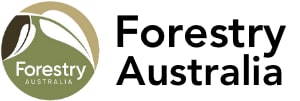
Bushfire Royal Commission: Specialist skills and year round land management key to reducing risk
MEDIA RELEASE
7 July 2020
Understanding the specialist skill set needed to fight forest fires and investing in year-round land management and fire prevention activity is the best way to avoid the widescale loss of lives, property and biodiversity experienced last summer according to the Institute of Foresters of Australia and Australian Forest Growers (IFA/AFG).
A submission from the peak organisation representing over 1,000 professional and scientific forest land managers was tendered as evidence at the Royal Commission into National Natural Disaster Arrangements (Bushfire) yesterday, Monday 6 July.
Chair of the IFA/AFG’s Forest Fire Management Committee Gary Morgan AM AFSM appeared on behalf of the IFA/AFG and said it was critical the specialist skill set required to fight active forest fires and manage future fire risk was fully understood.
“When you go into a forest fire, the fuels that you have there are different to what we have in buildings, and they’re different to the grasslands,” Mr Morgan told the Royal Commission.
“We often see aircraft bombing fires, and people think that they put the fires out. They don’t put forest fire out.
“Forest fire require a lot of work on the ground to remove fuels so that the fire is actually stopped from moving by a mineral earth break. These are often enlarged using backburns to remove fuel between the active fire edge and the constructed fuel break.
“It’s the hard work, which most people do not see, on the ground which is where mineral earthen breaks are constructed to separate the fuels from the ground which stops the fire burning over it.
“It takes a lot of hard work with hand tools (axes, chainsaws and rakehoes, not water) and forest machinery (e.g. dozers) to construct fuel breaks.”
Mr Morgan said a greater focus on year-round management would ensure those equipped with the skills and resources to fight forest fires could mount timely and informed attacks on any new fronts.
“Land managers are not just dealing with the response phase to the firefighting, they’re actually dealing with the all year round maintenance of our forested lands in national parks, State forest, reserves and commercial forests,” Mr Morgan told the Royal Commission.
“They’re out there doing the roads and the tracks and they’re making sure that there are the helipads that are there. They’re building up the knowledge of where they would be able to put out fires They do their prescribed burnings which reduce fuels. They do burning for ecological purposes and they do the high intensity forest regeneration burning, so they get a better understanding about fires and fire behaviour.
“All that knowledge builds up over time. So when the fire does come, whether it be from lightning or other causes, then they’re able to go out there and put it out in the briefest possible time using their skills.
“An urban firefighter with an urban tanker is going to be no good 200 kilometres away from the nearest hydrant with their equipment. You’ve got to be there with the right equipment, the right personal protective gear, and being able to perform under those arduous conditions.
“Afterwards, land managers go back and do the rehabilitation and then follow up with regeneration if appropriate. So they’re involved in it the whole way through, and that’s a particularly important aspect.”
IFA/AFG President Bob Gordon welcomed the organisation’s opportunity to present to the Royal Commission but stressed the importance of its final recommendations being implemented.
“The Royal Commission is a welcome opportunity for stakeholders to have some influence on long overdue improvements to forest fire management in Australia,” Mr Gordon said.
“The IFA/AFG’s Forest Fire Management Committee is Chaired by Gary Morgan AM AFSM and consists of a number respected fire experts who have already appeared at this Royal Commission including Kevin Tolhurst, Ruth Ryan, Neil Cooper.
“Tasked with providing firemanagment scientific advice and development on national positions, the collective knowledge of this experienced group should hold significant weight.
“However, we have made submissions to many previous bushfire inquiries throughout Australia and subsequently watched in concern as recommended changes have not been fully implemented.
“Unfortunately, you can’t minimise the impact of wildfire with words alone and It’s imperative that real action starts being taken now. IFA encourages and supports States and Territories to undertake full implementation of the COAG’s National Bushfire Policy Statement for Forests and Rangelands.
“Active forest management can play a vital role in increasing Australia’s capacity to mitigate the social, environmental and economic costs of future bushfire seasons.
“Maintaining a strong native forest timber industry is integral to reducing the risk of catastrophic wildfire events, which is more important than ever as Australia faces hotter and drier conditions as a result of climate change.”
A full copy of IFA/AFG’s submission to the Bushfire Royal Commission can be viewed here.
END
Contact:
David Abbott
Font PR
Phone: 0400 446 736

